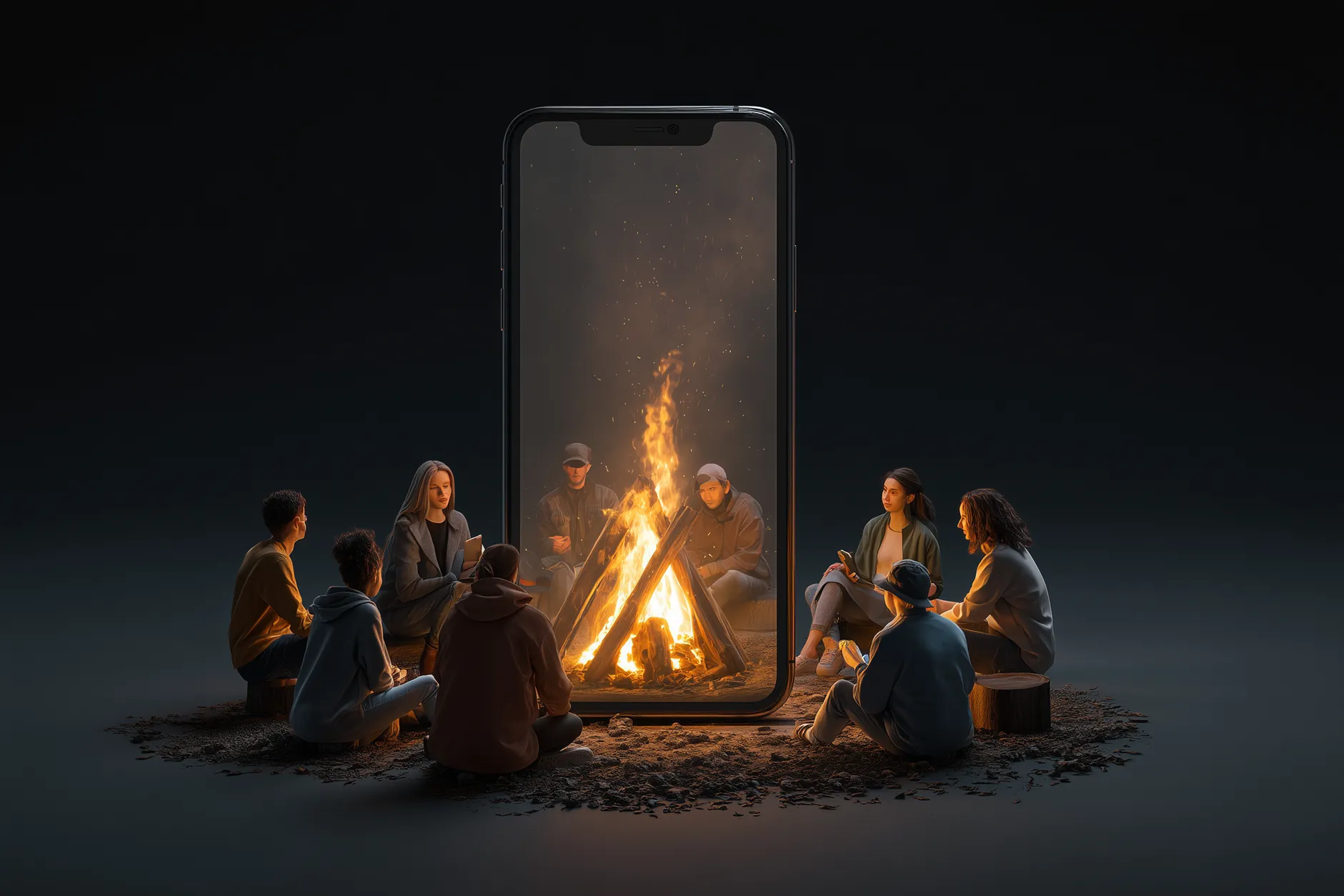That social media became such an explosive success is no surprise. This supposedly new technology seamlessly connects to ancient tribal intuitions. Facebook is the campfire circle, TikTok the tribal dance, X the gossip market, and LinkedIn the town hall. These platforms look futuristic, but they are in fact digital echoes of age-old impulses. They turbocharge our tribal reflexes: belonging, excluding, comparing, fearing the unknown. Once these instincts helped us survive in small tribes; today they form digital tribes on a global scale.
But this dynamic is not new. Every time a new medium emerges, old intuitions are awakened. In the 1930s, Hitler used the radio not to inform people, but to play on their primal drives. The voice from the loudspeaker turned millions of individuals into a single, seething crowd.
Our institutions, government, rule of law, and democracy, are built on writing. Paper was slow, deliberate, rational — exactly the qualities Churchill referred to when he said democracy was “the least bad system”: lumbering, often frustrating, but capable of ordering the voices of many. Yet that culture of writing is now under strain. TikTok ticks faster than parliament.
Where is this going? Don’t look at your screen, look at your brain. Humans have something unique: a large frontal lobe, the neocortex. With it, we can plan, calculate, and imagine the future. No other animal can do that as we can. It gave us science, art, and politics, but also the burden of endless worry. Hence the permanent frown on our foreheads: we literally carry our progress in our heads.
Physically, we are increasingly relieved of burdens. Machines lift, drive, and work for us, but mentally we carry ever more. Messages, meetings, and money matters — everything runs through our heads. It is progress, but also a growing burden.
It doesn’t always have to stay that way. What if technology didn’t just make us think faster, but also helped us worry less? What if computers and the internet became a kind of extra brain outside our skulls? Then we wouldn’t need to remember or calculate everything ourselves. Perhaps we could move the burden from our heads into the world around us.
That is the tension we live in: instinct, reason, and technology constantly wrestling with each other. Primal drives pulling us back to the tribe. A neocortex weighing us down with worry and responsibility. And a technological environment that is at once threatening and liberating. Biologist E.O. Wilson put it succinctly: “The real problem of humanity is that we have Paleolithic emotions, medieval institutions, and godlike technology.”
Our smartphone and our networks are extensions of what we already can do. They expand our memory, accelerate our thinking, and connect us in webs. But as long as Big Tech profits from spying on our reflexes, progress remains a trap.
The real challenge is different: can we design systems where companies earn just as much from protecting our privacy as they now do from exploiting it? Imagine a digital environment that does not consume you, but protects you.
Perhaps that is where the true future lies: not more brain in our heads, but an environment that thinks along with us and supports and enriches our humanity.


Comments (0)
Share your thoughts and join the technology debate!
No comments yet
Be the first to share your thoughts!